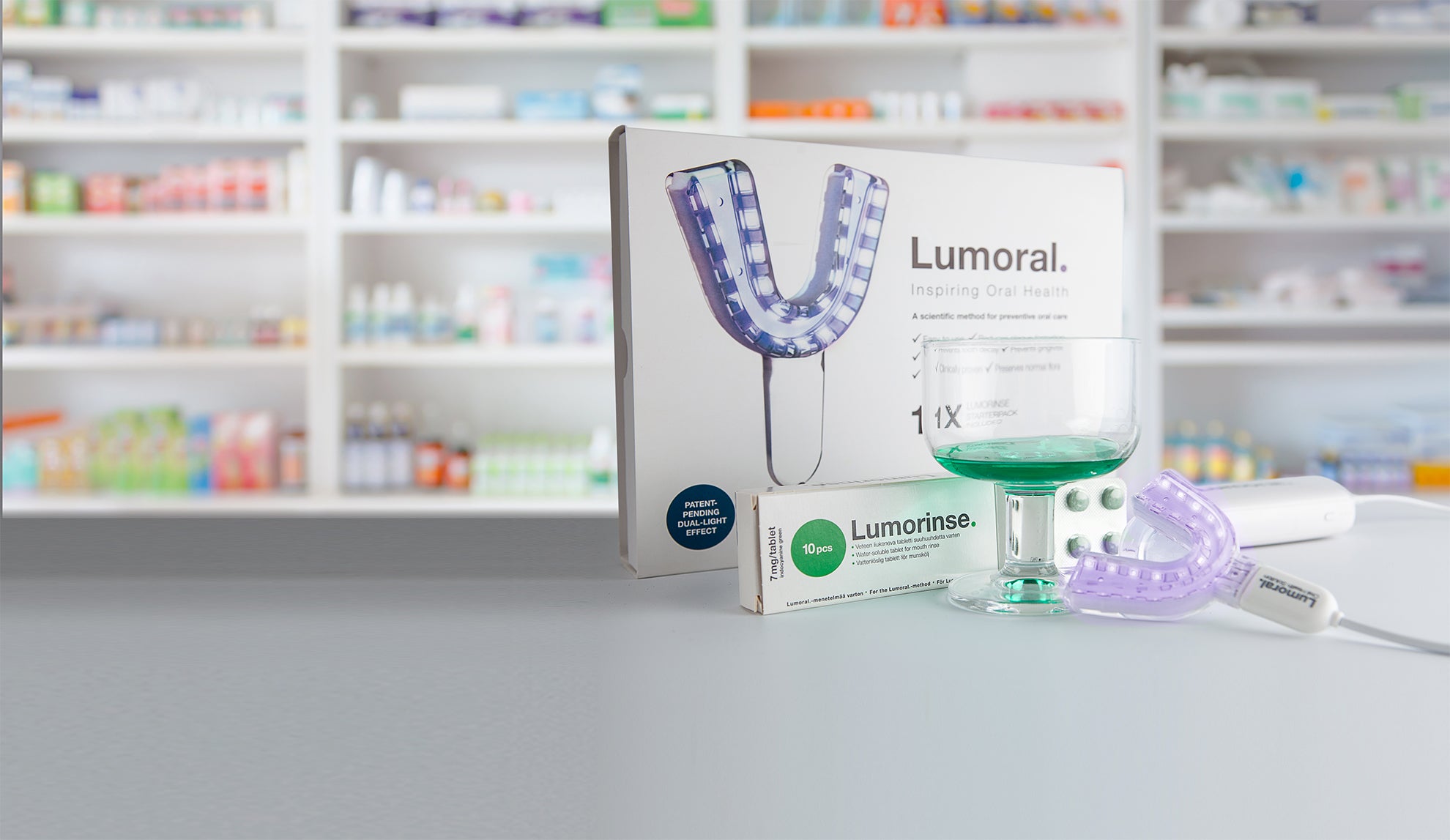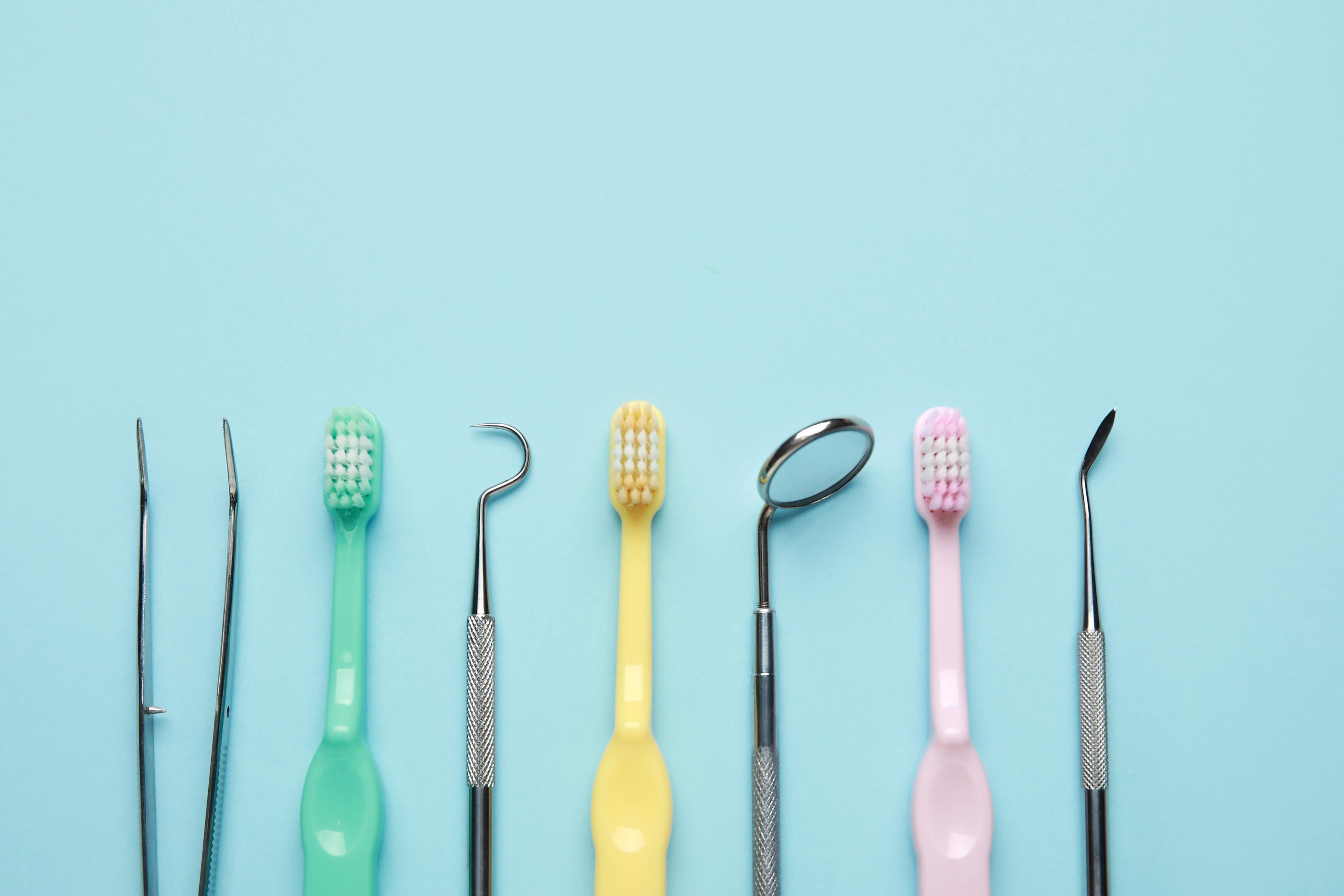Annimari Korte (35) is renowned for her sports track achievements and extensive sports career. However, many may need to realize that she is also a passionate advocate for oral health within and beyond the athletic arena. While a recent ADHD diagnosis may have come as a surprise in her life, for Korte, it brought a sense of relief.
Annimari is one of the fastest Finnish 100-meter hurdle runners ever and has represented Finland in several major competitions. Although she has decided to end her competitive career after this season, her goals remain high.
"The European Championships in early June are one of my main goals. I already reached the qualifying time last summer, so I don't need to chase any more limits, but I need to be in top shape by May," she says.
Annimari must meet the qualifying time to qualify for the Olympics or be ranked high enough by the end of June.
"It would be great to end my career at another Olympics. For most individual athletes in the world, competing in the Olympics is their biggest dream. It was a dream come true for me, too."
Elite Sports Challenge Oral Health
Success as a top athlete has not been a given for Korte. Illness forced her to even give up competitive sports from 2012 to 2017. It could be due to these setbacks that supporting overall health and oral well-being has always played an important role in her life.
Annimari points out that elite sports are one of the significant risk factors for oral diseases. According to one study, cavities are found in up to 70 per cent of elite athletes, tooth erosion in nearly 40 per cent, and severe gum disease in up to 15 per cent of dedicated athletes. (1)
"Athletes, in addition to their bodies, often put their teeth under strain because rigorous training requires sufficient energy intake. This can be reflected in the frequency of meals and acid attacks formed in the mouth," says Annimari.
Heavy breathing during intense training reduces saliva production in the mouth, causing dryness in the athlete's mouth. Saliva naturally provides good protection for teeth. When this is no longer the case, bacteria in the mouth can form cavities.
Annimari uses the Finnish researchers' developed light-activated Lumoral treatment as part of her regular oral hygiene routine.
"It's great that a device has been invented to help maintain oral health. Many don't realize how much oral health affects overall health and sports performance - including athletic performance," she says.
Annimari admits that training and top-level competition are much more challenging as one ages. Few over 30 can compete or train without any injuries, and dealing with them requires more effort than when younger. That's why taking care of health and healthy habits has been essential to her.
"Recovery is slower, and you can't train as much. It takes more time to recover from competitions and travel. So, you must try to eliminate all the extra stresses from training and focus only on the essential things. Experience, of course, brings the advantage of knowing what kind of training works for you and being able to train accordingly."

Oral Health and Overall Health Go Hand in Hand
Studies show that a long-standing infection in the mouth can cause low-grade inflammation in the body. Low-grade inflammation, in turn, has harmful effects on overall health. The inflammation can be present in the body without one being aware.
Annimari has noticed that her gum problems have eased since starting Lumoral use. This has been particularly important to her as a competitive athlete, as gum inflammation can maintain a mild inflammatory state in the body, adversely affecting overall health and thus also the progress of training.
Visible improvements in oral health have motivated Annimari to use Lumoral regularly for about a year and a half now.
"After starting to use Lumoral, I noticed that my gums no longer bleed when cleaning between my teeth. This has been a significant improvement compared to the initial situation. I've been using Lumoral since the beginning of last year, and I haven't even had a cold since. Last spring, I was able to train so well and healthily that I ran 12.83, which was my best time in three years!"
Annimari's oral hygiene routine includes daily mechanical brushing, cleaning between her teeth, and regular Lumoral treatment. (2, 3, 4)
If there's ever been a lapse in my Lumoral usage, I've observed my gums beginning to ache, signaling a potential recurrence of gum inflammation. Recognizing this, I promptly resume Lumoral treatment, and remarkably, after just one session, my gum condition improves."
Life Beyond the Racetracks
Annimari is ending her competitive career after this season. What thoughts does the decision to end her racing career evoke in her?
"For someone like me, it's probably unusually easy to end a top athlete career, as I've done it once for several years. Many people experience a crisis when their sports career ends, but I'm looking forward to enjoying normal life more and starting proper training with my dogs," says Annimari.
Sport has always been Annimari's passion and way of life, but now she looks forward to new adventures and opportunities. As early as next autumn, she plans to compete in sled dog racing with her Siberian husky, Cairo.
Last September, the sprint hurdler received confirmation of ADHD, a condition she had suspected for a long time. Getting the diagnosis was a relief to her because it explained many things in her life.
"I had considered the possibility of an ADHD diagnosis three years ago, but it slipped my mind afterwards. Even last winter, I mentioned it aloud once. These are typical symptoms of ADHD; thoughts and plans often fade into oblivion or are easily forgotten."
"The diagnosis was a big relief and explained many events, problems, and accidents in life."
Korte's openness about her ADHD diagnosis and its impact on her life is essential in fighting stigma and supporting others in similar situations. She now wants to encourage everyone concerned about their health to seek help if necessary.
"While ADHD certainly has its drawbacks, it can also be a significant advantage as an athlete. ADHD includes hyperfocus, where something interesting makes everything else forgotten, and everything can be focused on that one thing. For me, this has been hurdle running."
"ADHD doesn't prevent success, but it certainly helps when you find your own thing. I would encourage young people with ADHD to try out many different hobbies, where they can find their interests and utilize this hyperfocus."
Sources:
Merle CL, Wuestenfeld JC, Fenkse F, Wolfarth B, Haak R, Schmalz G, Ziebolz D. The Significance of Oral Inflammation in Elite Sports: A Narrative Review. Sports Med Int Open. 2022 Dec 25;6(2):E69-E79. doi: 10.1055/a-1964-8538. PMID: 36643596; PMCID: PMC9839431.
Pakarinen S, Saarela RKT, Välimaa H, Heikkinen AM, Kankuri E, Noponen M, Alapulli H, Tervahartiala T, Räisänen IT, Sorsa T, et al. Home-Applied Dual-Light Photodynamic Therapy in the Treatment of Stable Chronic Periodontitis (HOPE-CP)—Three-Month Interim Results. Dentistry Journal. 2022; 10(11):206. https://doi.org/10.3390/dj10110206
Nikinmaa S, Alapulli H, Auvinen P, Vaara M, Rantala J, et al. (2020) Dual-light photodynamic therapy administered daily provides a sustained antibacterial effect on biofilm and prevents Streptococcus mutans adaptation. PLOS ONE 15(5): e0232775. https://doi.org/10.1371/journal.pone.0232775
Nikinmaa S, Moilanen N, Sorsa T, Rantala J, Alapulli H, Kotiranta A, Auvinen P, Kankuri E, Meurman JH, Pätilä T. Indocyanine Green-Assisted and LED-Light-Activated Antibacterial Photodynamic Therapy Reduces Dental Plaque. Dentistry Journal. 2021; 9(5):52. https://doi.org/10.3390/dj9050052
FAQs related to the article's topic:
What preventive measures can endurance athletes take, in addition to the above measures, to protect their oral health during training and competitions?
Endurance athletes can protect their oral health by maintaining a balanced diet rich in vitamins and minerals, avoiding snacking on sugary foods, and using fluoride mouthwash to strengthen tooth enamel. During endurance training, it is good to take a sip of plain water after consuming energy.
Are there long-term studies or surveys showing that better oral health affects the performance of endurance athletes?
There has been much research and many studies on the subject, and new research results are constantly being published. Here are a few highlights:
- Vougiouklakis G et al. Dental data of the Athens 2004 Olympic and Paralympic Games.
- Ashley P. (2015, January 27). Oral health of elite athletes and association with performance: a systematic review. Retrieved from British Journal Of Sports Medicine.
- Gallagher J, Ashley P, Petrie A, Needleman I. Oral health and performance impacts in elite and professional athletes. Community Dent Oral Epidemiol.
- Frese C, Frese F, Kuhlman S, Reljic D, Saure D, Staehle H, Wolff D. (2014, May 9). Effect of endurance training on dental erosion, caries, and saliva.
- Oral health and sports performance in elite athletes (Perio talks podcast, also available on Spotify).
How do the acidity and sugar content of different sports drink and gel brands compare, and which ones are safer for teeth?
The acidity and sugar content of sports drinks and gels vary greatly between different brands; choosing products with a neutral pH level can help minimize tooth erosion. Citric acid is often added to energy gels as an additional ingredient to enhance flavor. However, it should be avoided as it increases the risk of erosion. For more detailed insights, it's best to consult a dentist or nutritionist.



Leave a comment
This site is protected by hCaptcha and the hCaptcha Privacy Policy and Terms of Service apply.